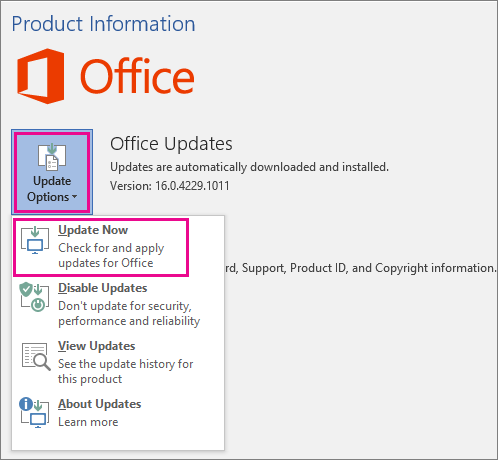Best Methods On Choosing Windows Microsoft Office Professional Download Sites
Best Methods On Choosing Windows Microsoft Office Professional Download Sites
Blog Article
Top 10 Tips Regarding Official Certificates Of Authenticity (Coa) When Buying Windows 10/11 Home Or Professional Products
If you're trying to be sure you're buying a legit product, always be looking for a Certificate of Authenticity. The COA can be an actual certificate or digital one that verifies the authenticity of your software. It's typically provided in OEM licenses as well as retail licensing. Here are 10 crucial points to keep in mind when working with COAs.
1. What is a Certificate of Authenticity?
A Certificate of Authenticity (Certificate of Authenticity) is a label, sticker or any other device that certify the Windows product key. For physical copies, it typically has a hologram, as well as an unique alphanumeric product code.
Understanding what the COA looks can help you determine if the key is authentic. The COA will usually be found on the packaging of the item, or for OEM versions, it is attached to the computer.
2. Be sure to look for Anti-copyright or Holographic Features
Genuine COAs are secured by anti-counterfeiting tools like Holographic images and color-shifting.
Look for these holographic security components that are made to aid in identifying fake COAs.
3. Microsoft Resources Verify COA
Microsoft provides resources to determine authenticity. Microsoft's website provides guidelines about how an authentic COA looks and includes examples to help you understand.
It is important to familiarize yourself with the functions of a key so you will know what to search for.
4. Beware of COAs that contain no product key
A genuine COA for Windows always includes a unique product key. Watch out for COAs without the product's code or an unreadable key or has been altered.
The key format of the product should be professional, clear and understandable.
5. Purchase from Microsoft Authorized Partners and trusted sellers
Purchase only from Microsoft-certified sellers or reliable electronic retailers. These sellers tend to offer genuine COAs with the key.
Purchase only from trusted sources. Do not purchase from a third party or an unknown source.
6. Beware of Digital Keys with No COA
If you're purchasing an OEM or retail key license, it's essential that the seller offers the buyer with a digital proof of authenticity. When buying second-hand and refurbished computer equipment, this is very vital.
It is a warning sign if there's no evidence of authenticity or COA.
7. Verify that the COA corresponds to the product
The details on the COA must be in line with the Windows version you're buying (e.g. Home Pro, 32-bit, 64-bit). The copyright item could be indicated by mismatching or inconsistent information.
In the case of OEM licenses the COA must be compatible with the model and brand of the device especially if the device was pre-installed.
8. Do not use COAs that appear damaged or Altered
If you get a COA in the mail Check to see the condition of the COA. If it is damaged or altered, you should immediately report it. damaged. If you see scratch marks, peeling paint or missing parts, it could be that the COA was removed from the device or copied.
A damaged COA could also indicate that the key was previously used or was not authentic.
9. Know that Not All COAs Are Transferable
If you're using OEM versions, your COA will be affixed to the original hardware of your PC. It cannot be transferred for upgrading or replacing the PC. You should know whether the COA you have is specific to a particular device or if it's able to be transferred.
Retail licenses are usually the only ones with a COA. This lets you be more flexible should you decide to upgrade your device.
10. Save a copy for future reference
Keep a copy of your physical or digital duplicate of your COA and product key for use in the future. This could be helpful if you require to activate Windows, verify authenticity, or even contact Microsoft support.
If the COA gets damaged or misplaced, you will not lose your key.
Additional Tips:
Check Serial Numbers. Some COAs have serial numbers which can be confirmed by contacting the reseller or manufacturer.
Keep the COA on original equipment: OEM licenses are valid for as long as the COA remains attached to the original device.
Keep your receipts. If you purchase licenses that have COAs, save the receipts as proof.
You can be sure that your Windows 10/11 product keys will remain valid indefinitely by paying attention to the COA details and verifying their authenticity. See the top rated Windows 11 Home product key for website info including Windows 11 activation key, Windows 11 pro key, buy windows 11 pro, buy windows 10 pro, windows 10 with license key for windows product key windows 10, windows 11 home product key, windows 11 home activation key, windows 11 activation key home, buy windows 11, buy windows 10 and more. 
The Top 10 Things To Take Into Consideration When Purchasing Microsoft Office Professional, Plus 2019/2021/2024
If you're considering purchasing Microsoft Office Professional Plus 2019 2020, 2024 or 2019 it is crucial that you understand the different types of licenses to ensure that you get the best one for your requirements. The terms, limitations and support options of different types of licenses differ. Here are ten suggestions to help you comprehend the distinctions between different types of license.
1. The most popular types of licenses
Microsoft Office Professional Plus has various licensing options, which include Retail (original equipment manufacturer), OEM (original equipment manufacturer) and Volume Licensing. Each type comes with their own terms and conditions.
Retail: A one-time purchase that is usually associated with a particular user. It's possible to transfer it (within the user) to an additional device.
OEM It is a device that can be installed only on the first device. It is not transferable. The price is usually lower, but it's less flexible.
Volume Licensing (also known as a multi-user license) is ideal for businesses or educational institutions.
2. Retail Licenses for Flexibility
Retail licenses give you the most flexibility. It allows for installing Office on devices and transferring the license in case you need to upgrade or replace your PC. This is a great option for users that may change their device or upgrade their hardware.
3. OEM Licenses at a lower Cost
OEM licenses, although less expensive typically restricted to specific devices and cannot be transferred. They're intended specifically for computers that come with Office pre-installed from the manufacturer. An OEM license could help you save money, however it can limit your choices if you are building or upgrading a customized PC.
4. Understanding Volume Licensing
Volume Licensing can be used by government agencies, businesses, and educational institutions. This option may be most efficient in the event that Office is being purchased for a significant number of devices and users. There are other advantages too, including central management, deployment that is more simple, and discounts based on the quantity.
5. Multiple Device Licenses Multiple Device Licenses
Retail licenses are usually for one or even two devices. (Example laptop and desktop laptop) Volume Licenses, on the other hand, can cover thousands or hundreds of devices based upon the agreement you sign. Be aware of the number of computers are covered by the license prior to buying.
6. Verify that the license transferability is possible
Retail licenses are generally transferable between devices (as as they're deactivated on the previous device) however, OEM licenses are tied to the primary device and aren't able to be transferred. If you're planning to switch computers often, this is an important factor to consider.
7. Think about the difference between User Licenses Vs. Device Licenses
Certain licenses are allocated to individual users, while others are allocated to devices. If you're buying Office for a person who will use Office on multiple devices, think about user-based licensing options like those offered with Microsoft 365 subscriptions and Volume Licensing.
8. Evaluation of Support and Updates
Microsoft provides regular updates to retail licenses, as well as volume licenses. OEM licenses are likely to have limited or no support. They might not be eligible for regular updates in the event that the device they're linked to ceases to be supported by its manufacturer.
9. Understanding Upgrade Licensing
With an Volume License or Retail license You may be able to upgrade to the most recent version of Office at a discounted rate or through the Microsoft Software Assurance program (for Volume Licensing).
OEM licenses typically don't provide the ability to upgrade, so you'll have to buy a new license if you want to upgrade to the latest version of Office.
10. Check the Terms of the License Agreement
Microsoft has provided an agreement for licensing Office Professional Plus. The agreement for licenses will describe any restrictions, rules regarding transfer, or rights of use on different devices, or for specific purposes. Understanding the terms allows you to stay clear of unexpected limitations.
The conclusion of the article is:
The type of license that you select to purchase Microsoft Office Professional Plus 2019-2021 2024 will depend on your requirements, regardless whether you're a private or a company or an institution. Understanding the differences among Retail, OEM, Volume Licensing is important to assist you in making a decision that's specific to your needs in terms of the flexibility, cost, support or scaling. Be sure to read the license terms before purchasing an item. Follow the recommended Ms office 2019 for blog info including Microsoft office 2021, Microsoft office 2021, Office 2021 key, Office 2021 professional plus, Office 2019 download for Ms office 2021 Ms office 2019, Microsoft office 2021, Ms office 2021, Ms office 2019, Office 2019 download and more.